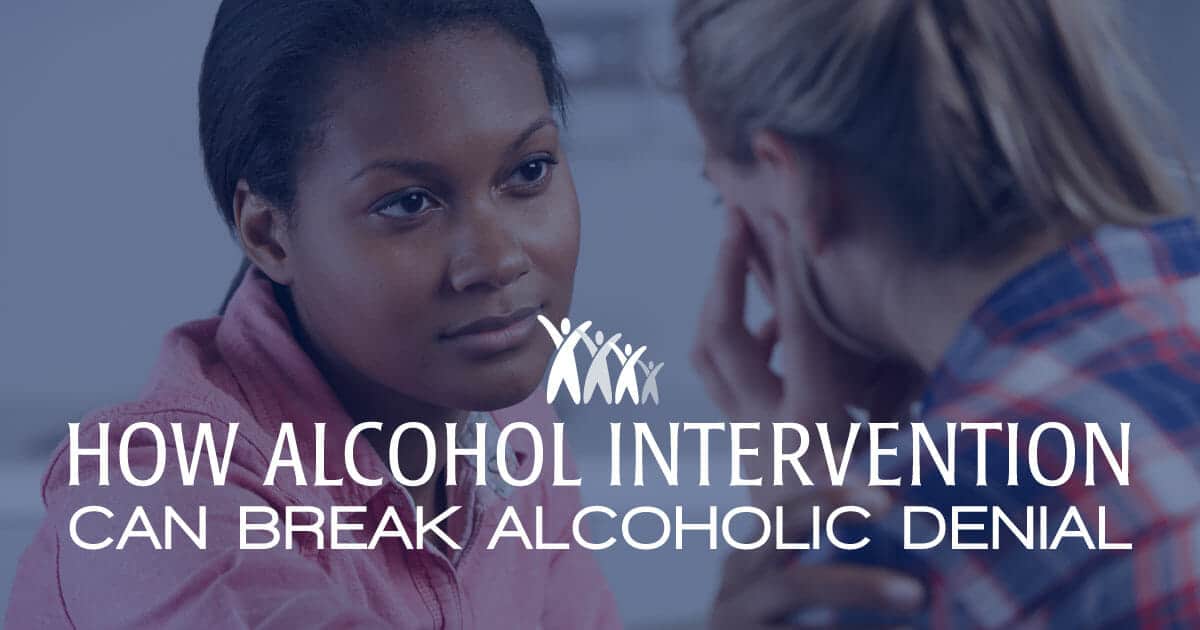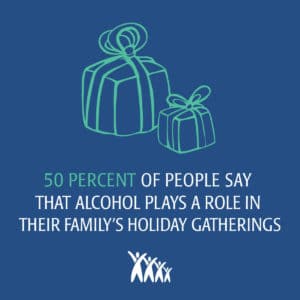Search by category, archive or keyword

If you’re in the heartbreaking position of watching a loved one’s life become consumed by alcohol addiction, then you probably know firsthand the power of alcoholic denial.
Whether you’re married to an alcoholic or if you’re the parent, child, brother, sister, or friend of someone who abuses alcohol, the difficulty of getting through to an alcoholic who refuses help is universally frustrating.
Getting an alcoholic to admit his or her problem is very difficult, more so than with any other type of addiction. In this article, we’ll address the reasons why alcoholics get stuck in denial, what it takes to get them to admit to their problem, and what you need to know about the particular requirements of intervention for alcoholics.
Why Do Loved Ones Lie and Get Stuck in Alcoholic Denial?

Keep in mind that no one decides to become an alcoholic. This type of addiction usually starts innocently enough with a few drinks and then gradually escalates into abuse and addiction. It happens so slowly that the alcoholic may not be aware of the extent of the problem.
Plus, it’s difficult to persuade alcoholics to seek help because they think they’re different than drug addicts. They don’t understand that alcohol is a substance that can be just as bad, if not worse, than any other drug.
Consider that with alcohol:
- It’s legal.
- It’s socially acceptable.
- It’s a common form of stress relief.
- Most alcoholics are often still able to hold down jobs and keep money in the bank.
These factors make it easier for alcohol abusers to deny that what they’re doing is a problem. You’ll hear them say things like:
- “I have it under control.”
- “I can cut back anytime I want to.”
- “I’m a grown-up. I can enjoy a few drinks.”
- “It’s none of your business.”
- “You’d drink too if you had my life.”
Even if the alcoholic does have some awareness that things have gotten out of hand, he or she may still be resistant to change because of the underlying factors that led to drinking in the first place.
Even if your loved one stopped drinking, the original cause of the drinking would need to be addressed – and if they knew how to do that without alcohol, they probably would have done so to begin with.
And finally, there’s the simple fact that most people don’t like to admit their mistakes and ask for help.
How to Get an Alcoholic to Accept Help
Based on what they’ve seen on TV or heard from others, many people think that it’s up to the family to host an alcohol intervention and that all they have to do is sit down together and give the alcoholic some honest, tough love. But interventions are not that simple, especially where alcohol abuse is concerned.
Because of the factors mentioned above, the alcoholic can make very logical arguments about why his or her drinking is not a problem. As a result, a do-it-yourself intervention can quickly turn into an arguing match – one which the family members almost always lose. The family is at a disadvantage because the alcoholic is in denial, so the individual can just brush off any facts that don’t support his or her viewpoint.

Unlike in movies, boldly confronting an alcoholic with the facts of his or her addiction and its consequences usually won’t have the desired effect of breaking through alcoholic denial. In fact, it will probably have the opposite effect and cause the alcoholic to become more defensive, pushing him or her further into denial.
Because of this, family members and friends of loved ones should not attempt to intervene in cases of alcoholism or severe alcohol abuse without the help of a professional interventionist.
Let the Professionals Do What They Do Best
The reality is breaking through denial and getting an alcoholic help takes special training. Rather than taking on the burden of figuring out how to host an intervention themselves – and dealing with the fallout if it doesn’t work – families’ energies are better spent bringing in a professional interventionist who knows exactly what to do in these situations.
Having a neutral third party host the intervention also allows the family to focus on what they’re best at – supporting their loved one.
At Family First, our intervention experts not only lead the actual intervention, but we also work with the family beforehand to help them prepare and to teach them how to be supportive yet firm during and after the intervention. We do everything possible to turn the odds of success in your favor.
Is your loved one in denial about their alcohol problem? Learn about how professional alcohol intervention works, or contact one of our intervention specialists with your questions. All calls are completely confidential.
An intervention is not about how to control the substance user; it is about how to let go of believing you can.
“The most formidable challenge we professionals face is families not accepting our suggested solutions. Rather, they only hear us challenging theirs. Interventions are as much about families letting go of old ideas as they are about being open to new ones. Before a family can do something about the problem, they must stop allowing the problem to persist. These same thoughts and principles apply to your loved one in need of help.”
Mike Loverde, MHS, CIP



